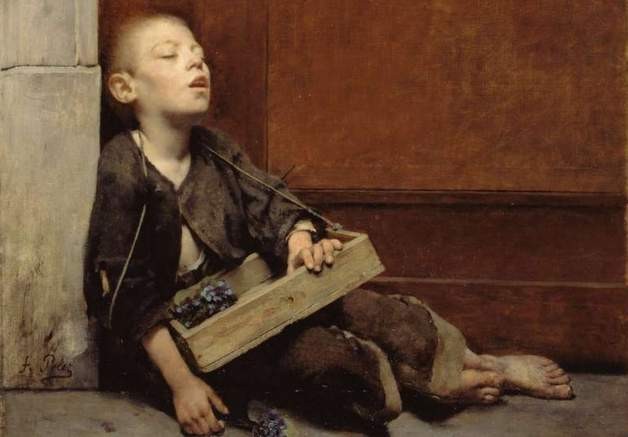The soldier motioned for us to roll down the window—the first military checkpoint of my first road trip through the jungles of Chiapas. I sat in the back seat a bit anxious, one of six friends cramped into the five seats of an old four-door sedan. Handling his semi-automatic, a federale stepped out of the group of sentries and asked for identificación. There was a moment of tense silence. My friend Carlos, the driver, rummaged through his pockets. He knew, though I didn’t, that his search would be futile. Finally, he confessed to the sentry that he did not possess a license.
A few quick words were exchanged between the soldier and Carlos before Pedro, cramped next to me in the back seat, passed up his own licencia. The federale examined the card, fired off a few rounds of words in rapid Spanish just missing my comprehension, and waved us through. I couldn’t help but wonder at the efficaciousness of Pedro’s intercession. Here was a country that took to heart the communion of saints, the indulgence gained on another’s behalf, the license of a friend being reckoned as one’s own—or maybe we just didn’t look like narcos.
We traveled for another hour or so before we encountered our next checkpoint of sorts, more nerve-racking than the first. We were not stopped by federales, but by that other notorious and much more ubiquitous Mexican law enforcement official known as the tope—what we call north of the border the speed bump. As we slowed to climb over the first of these little concrete mountains, we were met not by armed guards in combat boots, but by an army of barefooted Mayan children holding bags of sliced fruit. They knocked their small fists against our doors and windows, hoping that we would open up and buy their over-ripened goods. I was terrified that we might run over their feet, they were so close to the car.
Carlos, our unfazed, unlicensed driver slowly pulled away from the kids. It pained me to watch them run alongside us, hands outstretched. Pedro had offered his license for Carlos, but who would be these kids’ intercessor? It was my senior year of college, and I had some pesos in my pocket. I should have bought their rotten fruit. “How does God’s love abide in anyone who has the world’s goods, and sees a brother or sister in need and yet refuses help?” (1 Jn 3:17).
We encountered other poor Mayan children on our trip. We stopped at the emerald lakes and were followed for a time by a little boy and his sister. For a while they repeated what seemed to be the only Spanish words they knew, “Unos pesos, por favor?” After we gave them some money, they stopped asking, but they continued to follow us. My friend Victoria stooped down to ask them their names. They smiled but they did not respond. Her every playful question was met with a smile, a stare, and silence. Still they followed us. I will not forget their faces. They needed more than money.
I think of the faces of those poor Mayan children around this time of the Epiphany. With an urgency rivaling that of the Magi, they await the revelation of a king to save them. In the poor Christ child, their king has come. For his part, he has promised them a kingdom, and he will come soon to deliver. Meanwhile we must serve them in his name, and in turn they will minister to our souls. This is why Pope Francis wants a Church which is poor and for the poor: “They have much to teach us . . . in their difficulties they know the suffering Christ. We need to let ourselves be evangelized by them.”
I will always remember pulling away from those barefoot, running children with bags of fruit dangling in their hands. I will probably never see them again in this life. But I hope one day to be looked upon by those faces, not unwashed and dirty through a rearview mirror, but crowned with gold and seated on thrones. Then, at my final checkpoint, with Christ in glory, they will judge me by my love.
Remember me, little ones, when you come into your kingdom.
____________________________________________________
Today the ministry of the Church to the poor and the orphan continues, especially by the service of consecrated men and women. Our own missionaries in Eastern Africa, the late Fathers Tom Heath, O.P., and Lewis Shea, O.P., established a scholarship fund to send orphans from Kisumu, Kenya, to various boarding schools so that they could receive a Christian education. After the election violence of 2008 made it necessary to consolidate the students in one location, the Dominicans of Eastern Africa established Our Lady of Grace School, our own boarding school in Kisumu. Please consider supporting the children of the school with your prayers and financial resources.
✠
Image: Fernand Pelez de Cordova, Le Marchand de Violettes (The Violet Dealer)







